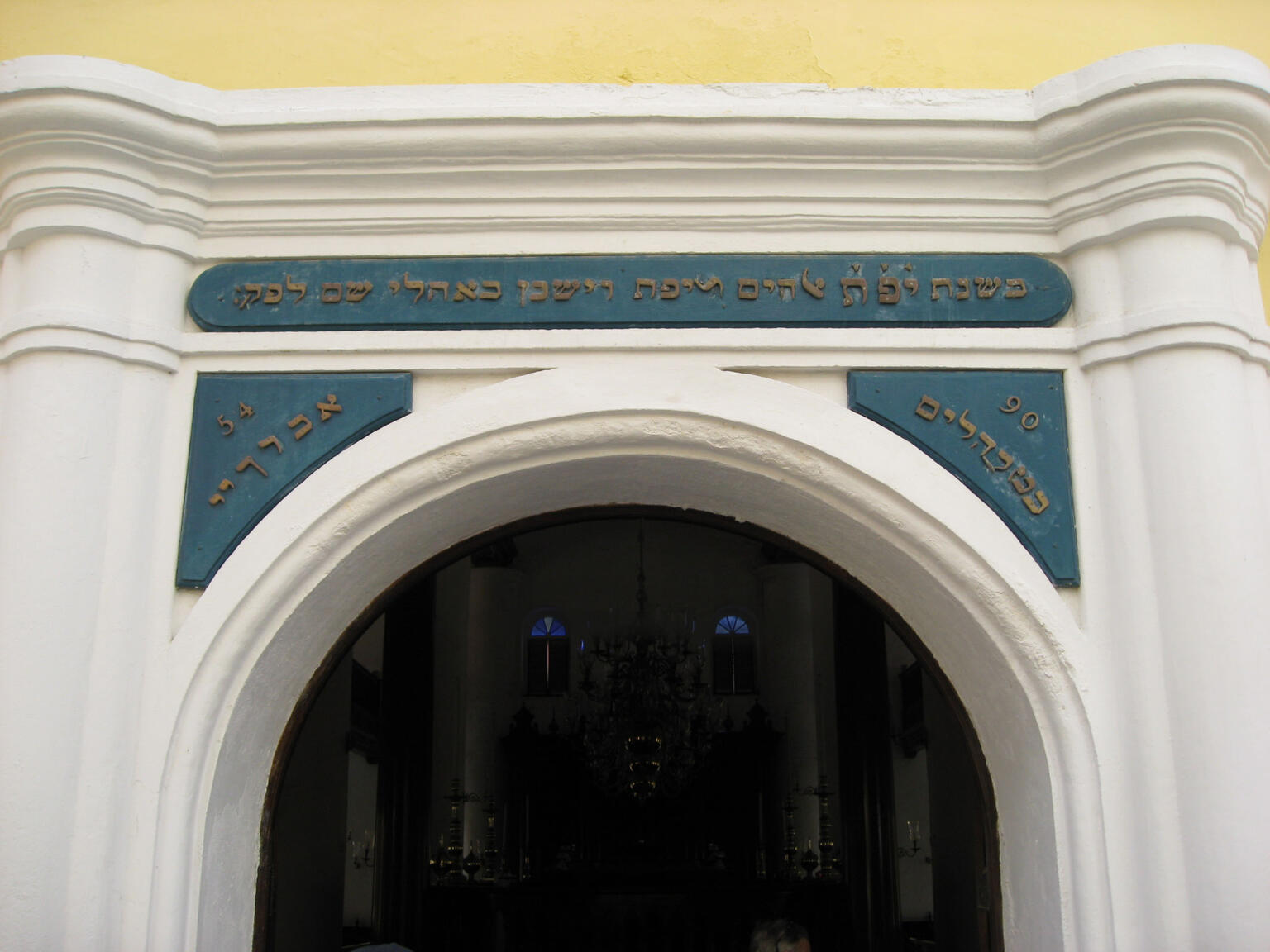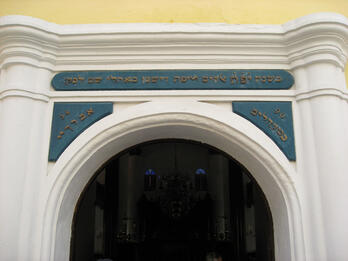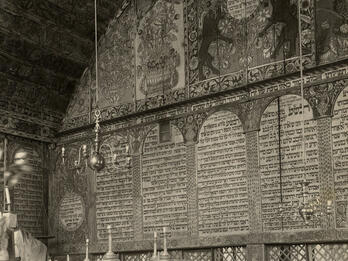Acordos (Regulations): On Unruly Boys
On the 28th of Tisry, yr. 5468 [1707], the gentlemen of the Mahamad and their councillors met to correct the disorders caused in this Holy House by the big boys and lads who do not attend the Medras. The boys believe that they are accountable to no one, that they are free from punishment by the schools for non-attendance, and that since they are under age the punishment specified in the Regulations cannot apply to them. Since this insolence has reached the extreme where the boys have lost respect even for the parnassim of the T[almud]: T[orah]: and the Rubisim, the said gentlemen of the Mahamad and their councillors have found it expedient to fix the proper correction for the decorum of this Holy House.
With the approval of G[Hazan]. Samuel Levy Maduro who is busy with his cantorial duties and on the zealous offer of Mr. Gabriel Levy [to serve], said gentlemen elected him as Parnas of T[almud]: T[orah]: in Mr. Sam[ue]l Levy Maduro’s stead, with full faculty and power to punish all boys who are boisterous in the Synagogue. The same power is given to his colleague, Mr. Joseph Fidanque, and to all the gentlemen who may succeed him in this charge and, in his absence, to the teachers of any of them (proposed but not accepted).
When a boy gives the parnas cause to send him to the school for punishment which shall be meted out at the election of the parnassim of T[almud]: T[orah]:, his father shall be unable to prevent this unless he pays the fine specified in our Regulations.
All the gentlemen who do not wish their sons to be under the vigilance of the parnassim of T: T: should declare that before the gentlemen of the Mahamad so that the boys may be noted down as being subject to the Escamoth [ordinances].
The fathers are also forbidden to take their sons to their seat[s] or to put them in through the window or to take them to the women’s Synagogue [gallery], unless they are four years of age or under. All lads over that age shall remain under the [vigilance of the] parnassim of T: T: who will be vigorously supported by the gentlemen of the Mahamad and councillors. By this means do we hope to attain tranquility and divine decorum in this Holy House. There is no doubt of the interest of all the members in schooling their children to be respectful and obedient to the parnassim of the T: T: and the teachers, for by these means can we hope the Lord God to prosper the entire membership of this H[oly]: C[ongregation]: And may there be peace over Israel.
Signed: Abraham Naar, Treasurer [ . . . ]
In the Name of Blessed God
The Messrs. Parnassim of T: T: having disclosed to the gentlemen of the Mahamad and councillors the liberty which the students take on becoming Bar Misva, [in that,] contrary to the divine commandments, like libertines they discard and abandon all the[ir] previous education whose only purpose was to prepare them for the study and cultivation of the divine law on reaching this age; [and whereas] this should not be expected [tolerated] if we do not want it to seem as though we approved of our sons’ wandering from the meditation of God’s Law [and] with some following [the example of] the others, the Lord God withdraw His protection, heaven forbid, because this [the study of the Torah] is our only means of attaining divine mercy, of expecting Him to take us under His wing and making us prosper in our careers out of the zeal and love for our divine Law that lead for us;
The gentlemen of the Mahamad and councillors resolved that all boys up to the age of sixteen years must attend school and under no pretext may refuse to attend. The Messrs. Parnassim of T: T: are hereby given the faculty and absolute power of enforcing this in the manner they deem necessary in order to teach said [boys] with their life and by force if need be—all for the service of God.
The devotion and love of all the members is counted upon in making their sons fulfil this sacred duty, for the achievement of which we can hope God will bestow the blessing He promises, that He will open the windows of heaven and pour His blessing upon us until we cry out, Enough!
May God make us worthy of this grace and prosper this entire H[oly]: C[ongregation]: And may there be peace unto all.
Done the 26th day of Hesvan, Yr. 5489 [1728].
Signed: Mosseh de Chaves
Treasurer
Notes
Words in brackets appear in the original translation.
Credits
Published in: The Posen Library of Jewish Culture and Civilization, vol. 5.







